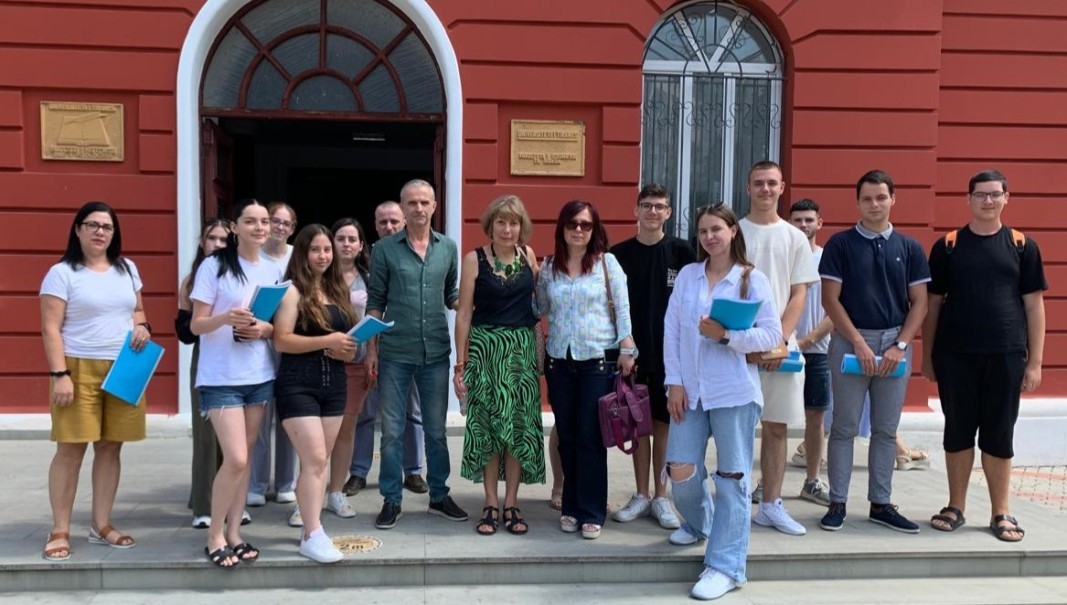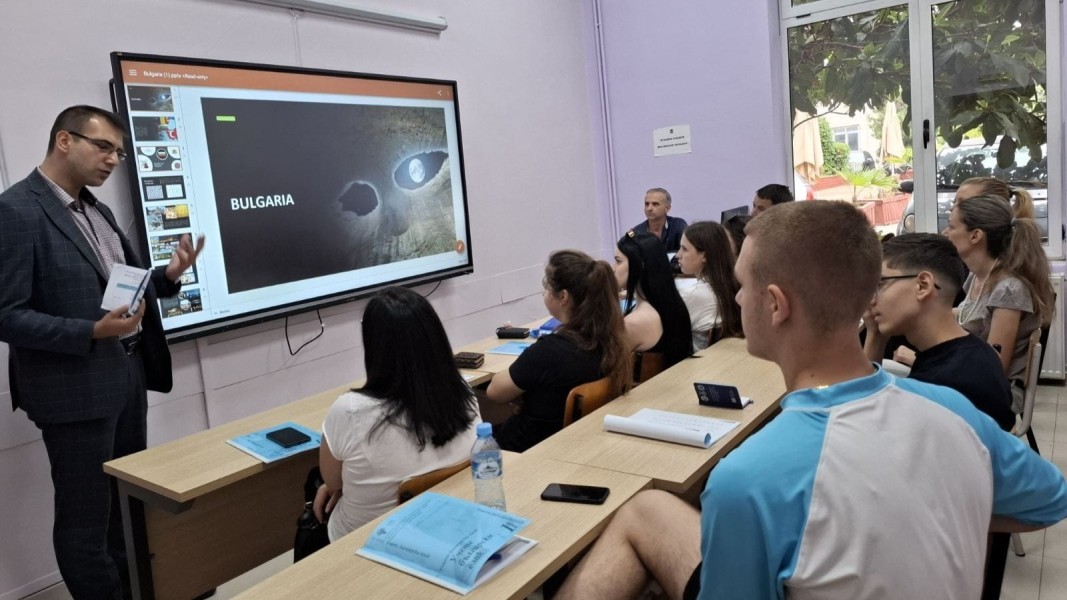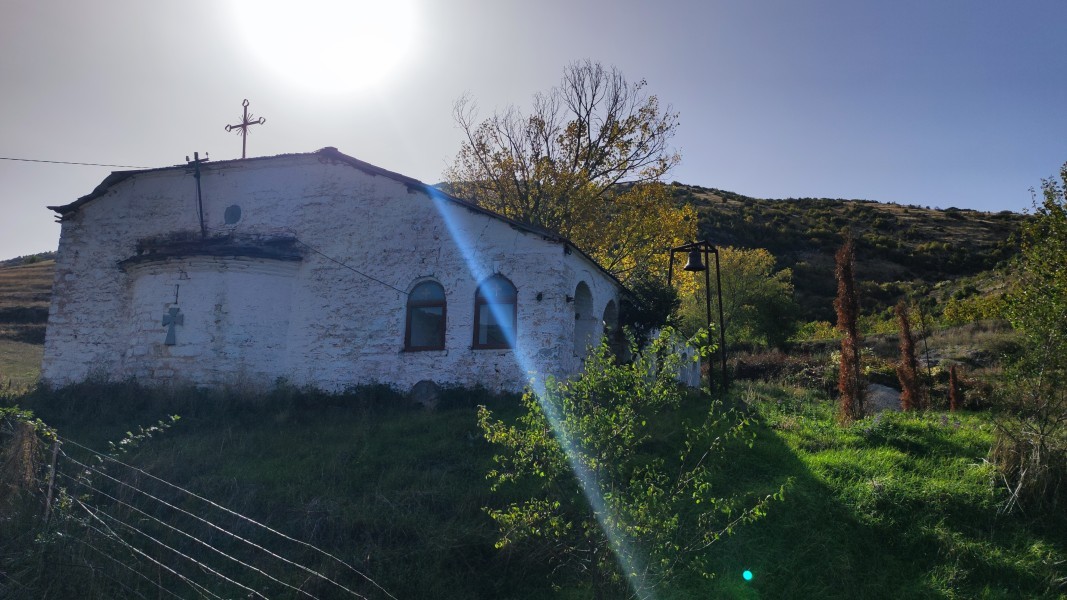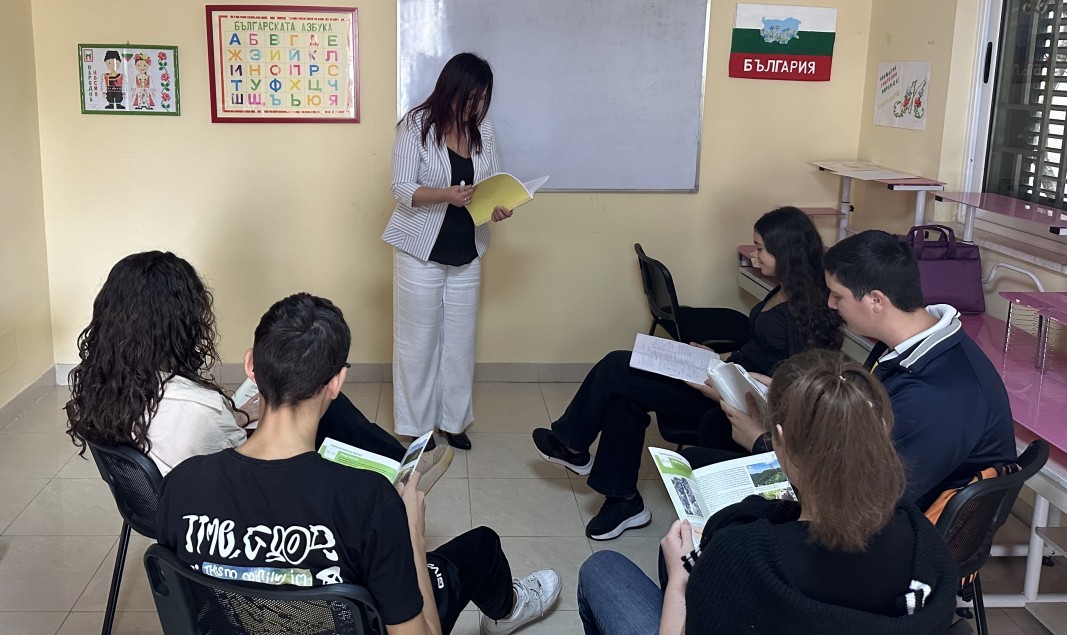The Bulgarian language is studied academically in Albania, much like in many other places around the world. Our lectorat is part of the Department of Slavic and Balkan Languages at the Faculty of Foreign Language Studies at the University of Tirana, and for several years now, Associate Professor Dr. Raki Belo has been teaching Bulgarian language, literature and culture there.
He himself is from the Bulgarian national minority. He was born in the village of Vrabnik (Vernik), the easternmost point of Albania. He graduated in Bulgarian Philology at the South-West University "Neofit Rilski" in Blagoevgrad and is also part of the academic staff of St. St. Cyril and Methodius University of Veliko Tarnovo. For Associate Professor Dr. Raki Belo, teaching Bulgarian in Albania is a vocation and a challenge.
''The Bulgarian language here is an elective subject and is studied for 4 semesters", Associate Professor Dr. Raki Belo said in an interview for Radio Bulgaria. The lectorate has existed for many years – even before the time of socialism. Students study mainly Bulgarian, but during the classes we also introduce them to Bulgarian literature and history. Most of the students are of Albanian origin, though young people from other countries, especially those who come through various European programs like Erasmus, also show interest in the language. There are also Albanian students of Bulgarian descent from the historical and geographical areas with a compact Bulgarian population – Gora, Golo Bardo, Mala Prespa''.

Students with Bulgarian language skills find employment in the fields of tourism, science and public administration. For the past four years, the summer school in Bulgarian language, organized with the assistance of St. St. Cyril and Methodius University of Veliko Tarnovo, has also been gaining popularity.
''In July, students can upgrade their knowledge about the language and culture of Bulgaria, because the Bulgarian language classes at the faculty are insufficient – Associate Professor Dr. Raki Belo went on to say.

– Anyone interested can enroll and, over the course of several weeks, study the Bulgarian literary language and some of the literature and history of Bulgaria.''
Field workshops are also held during the summer school. For example, last year, the participants in the initiative visited the historic city of Berat, which preserves a number of artifacts related to Bulgarian history. Berat was an integral part of the First and Second Bulgarian Kingdoms, and today it is a museum city. In 2008, it was inscribed on the UNESCO World Heritage List.
''The name of the town comes from the Bulgarian language and means ''white town' – Raki Belo explains. – There, the relics of the disciples of Cyril and Methodius, Saints Gorazd and Angelarius, are kept. Thus, Berat preserves artifacts valuable to Bulgarians. A church located in the Berat Castle, which today is a museum, preserves medieval icons from all churches in Albania. Among them is an original icon of the Holy Seven Saints, painted by the famous local iconographer Onufri."

"Albanians know very well the history of their territory and tell it as it is", Associate Professor Dr. Raki Belo from the University of Tirana says and addresses the issue of tolerance.
"Albanians are tolerant and all minorities have equal rights, including the Bulgarian minority. No one here prevents you from speaking Bulgarian or publicly declaring yourself Bulgarian. On the contrary – as a minority, we have the right to study Bulgarian language and that's why we have Sunday schools – in Tirana, Elbasan, Korçë, Durrës and others that are yet to be opened. The school in Tirana has been open since 2015. In the capital city, we can meet Bulgarian families from all corners of Albania. Because we are an indigenous population, formed historically - just as Bulgarians are in today's Bulgaria.

In Tirana, we have families from all these regions with Bulgarian population – Gora in Northeastern Albania, Golo Brdo in the northern part of the country and the Korçë region in the east. They all send their children to the Bulgarian school."
Photos: Krasimir Martinov, Kostandina Belo, Faculty of Foreign Languages – University of Tirana
Translated and published by Kostadin Atanasov
The Embassy of Bulgaria in the Arab Republic of Egypt and the Republic of Sudan and the management of the Bulgarian School "St. Cyril and Methodius" in Cairo invite our compatriots to the opening of the 2025/2026 academic year. The event will take..
Today, 57,000 first graders across Bulgaria walked through the school doors for the first time. More than 2,300 schools across the country opened their doors to welcome students on September 15, a BGNES reporter..
An event dedicated to the Bulgarian oil-bearing rose (rosa Damascena) will take place on September 19 in Ireland, BTA reports. Its organizer is the Embassy of Bulgaria in the country. “We are pleased to invite you to a unique journey of sound..
Today, 57,000 first graders across Bulgaria walked through the school doors for the first time. More than 2,300..
The Embassy of Bulgaria in the Arab Republic of Egypt and the Republic of Sudan and the management of the Bulgarian School "St. Cyril and Methodius" in..

+359 2 9336 661
